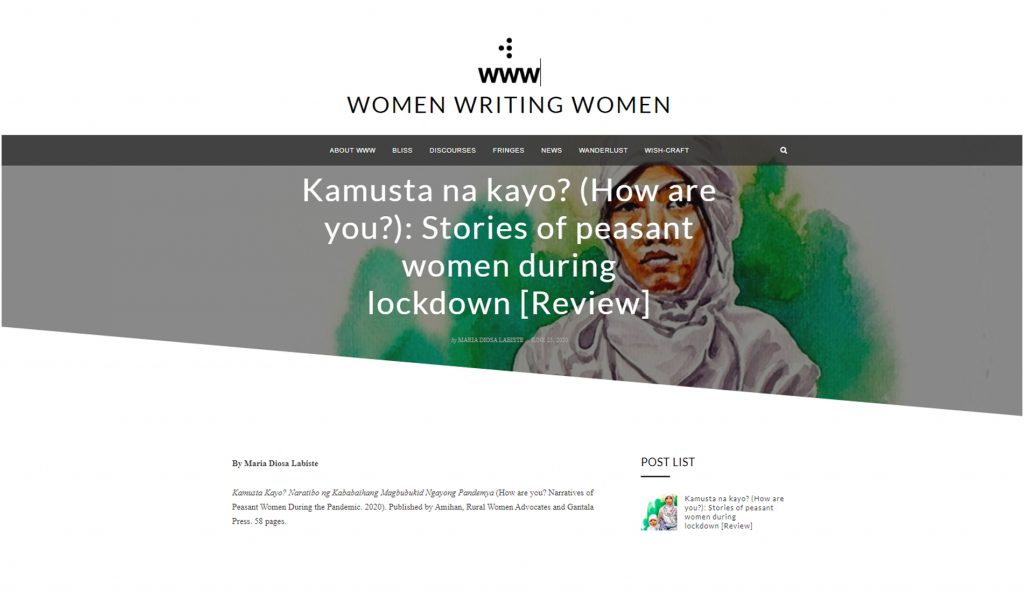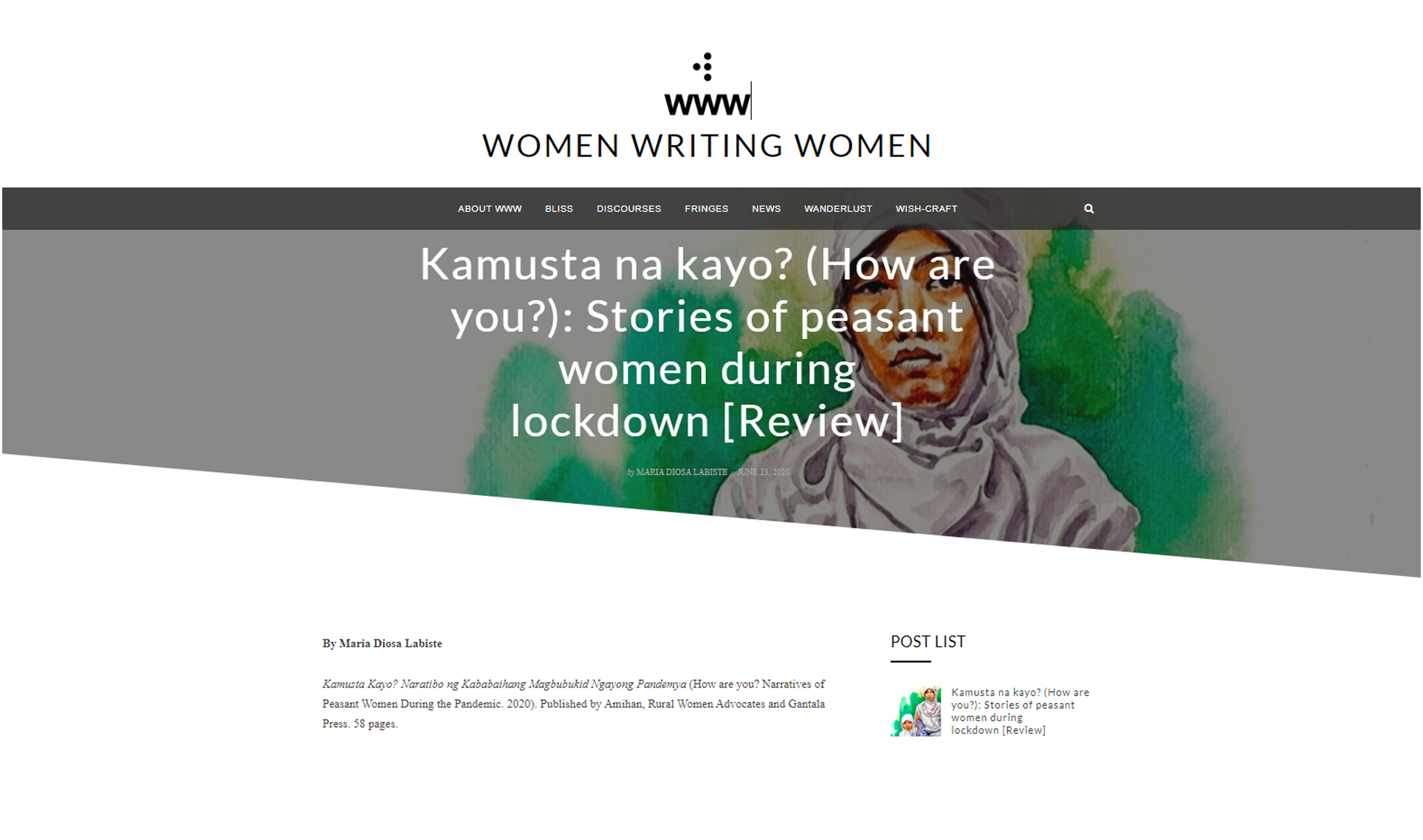Kamusta na kayo? (How are you?): Stories of peasant women during lockdown [Review]
Prof. MA. DIOSA LABISTE is with faculty of journalism of the University of the Philippines College of Mass Communication. She earned her doctorate from the University of Birmingham, U.K. She co-authored STORIES OF STRUGGLE: EXPERIENCES OF LAND REFORM IN NEGROS, THE PHILIPPINES (UP Press, 2018). She is a founder of Women Writing Women Philippines.

Kamusta Kayo? Naratibo ng Kababaihang Magbubukid Ngayong Pandemya (How are you? Narratives of Peasant Women During the Pandemic. 2020). Published by Amihan, Rural Women Advocates and Gantala Press. 58 pages.
The philosopher Hannah Arendt was once asked by Günter Gaus, whether she missed pre-Hitler Europe after she went on an exile to the United States. “What, in your impression, remains and what is irretrievably lost?” asked Gaus. “What remains?” said Arendt. “The language remains.”
I thought of Arendt’s words when I read Kamusta Kayo? Naratibo ng Kababaihang Magbubukid Ngayong Pandemya (How are you? Narratives of Peasant Women During the Pandemic), an e-zine or electronic magazine, published by Amihan, Rural Women Advocates and Gantala Press. Arendt’s experience of fleeing a horror that was Germany under the Nazi regime could provide some parallel moments for rural women in the Philippines, although in a much different time and circumstances.
Arendt had refused to lose her mother tongue because it is where she could access poetry, her lifeline during crisis. But while Arendt was able to physically escape that which terrified her, the same was difficult for the many peasant women in the book, who were immobilized by fear of contracting the coronavirus disease (COVID-19) and being subjected to state repression.
The central theme of the e-zine is fear – of coronavirus, of hunger, of being arrested. Fear can be sensed on the women’s words elicited by the casual greeting: “kamusta na kayo/ how are you?” It is a question that pricked and provoked the women to speak out. Their answers came as vignettes, poems, recipes, and evocative accounts of how they lived through 11 weeks of nationwide lockdown, said to be among the strictest in the world, to prevent the spread of the virus. If they were to be asked of same question as Arendt, on what remains, perhaps the women would say: “The stories remain.”
Read full rewiew here: https://womenwritingwomen.com/2020/06/23/kamusta-na-kayo-how-are-you-stories-of-peasant-women-during-lockdown-review/?fbclid=IwAR3Tc6gLGpZSgSTm_yGFCd_4s4-0Xtfk1F61F8HU_gxnP9AXzFDuNybVliU

